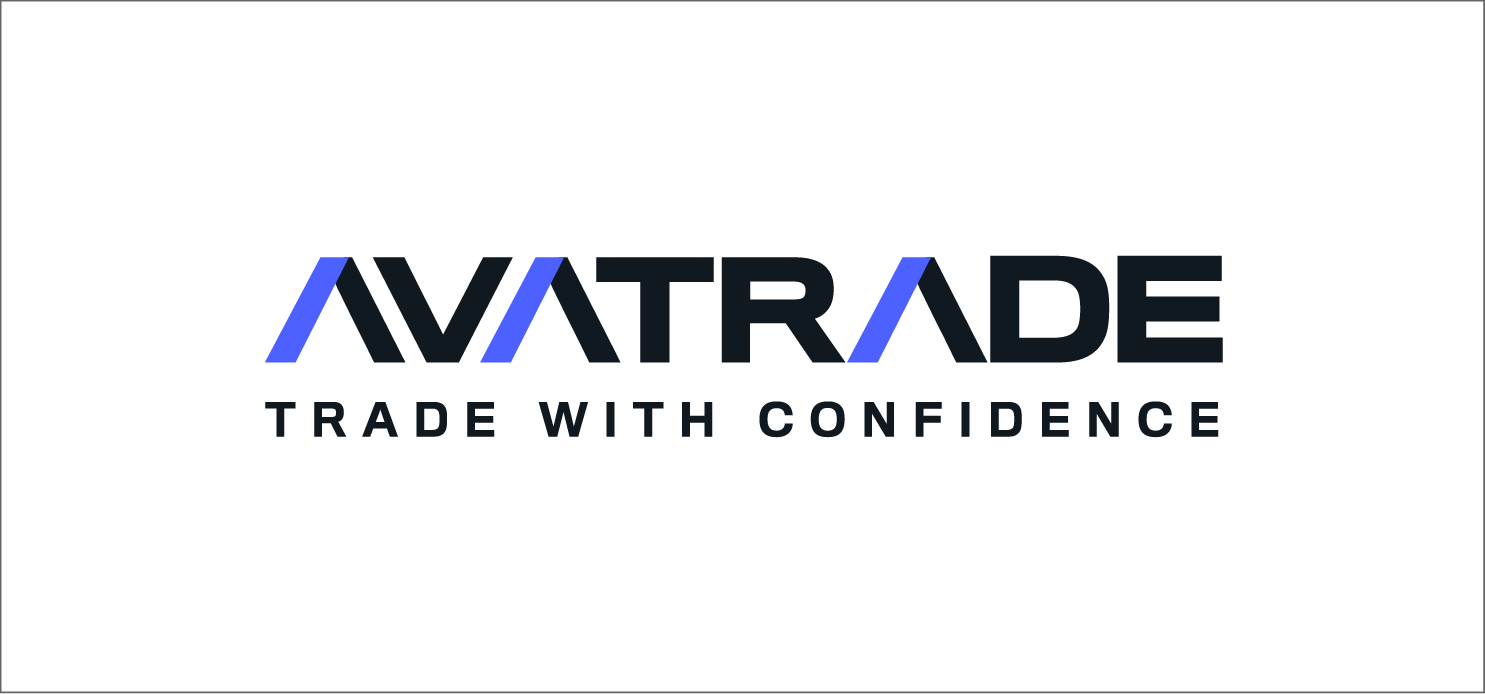Best Trading API Brokers & Platforms in 2026
All products and services featured are independently selected by WikiJob. When you register or purchase through links on this page, we may earn a commission.
- What Is API Trading?
- A List of the Best API Trading Platforms for January 2026
- Comparison Chart for the Best API Brokers for January 2026
- Description of the Best API Trading Platforms for January 2026
- Why Use API Trading?
empty
- How to Connect an API to a Broker
- Who Would Benefit From API Trading?
- What Are the Pros and Cons of Using Trading APIs
empty
empty
- Frequently Asked Questions
- Final Thoughts
What Is API Trading?
If you are looking for ways to ensure that your trading is executed faster and that all your products are working well together, then you might want to consider using forex trading APIs.
Trading APIs are essentially a connective piece of software that runs between your trading account and your best trading platform with API to ensure that a connection is fast and secure.
An Application Programming Interface (API) is often a piece of coding or programming that is designed with a specific role in mind; and when it comes to trading, APIs are used to connect two applications to make your trading experience better, acting as a software intermediary so that everything works smoothly and as fast as is possible.
API trading platforms allow better connections so that you can get immediate access to live market data as well as historical, and that you can generate the right reports about your orders and trades.
API Brokers integration will be able to provide better transaction information so that you can make better trading decisions.
A List of the Best API Trading Platforms for January 2026
- Pepperstone – Top Forex API Broker
- AvaTrade API – Best Stock Broker with API & No Commision
- IG API – One of the Best Brokers with API Access & Demo Account
- Saxo – Top FX Trading API Brokerage
- XTB API – Among the Top Trading Platforms with API & No Minimum Deposit
- Coinrule – API Trading Platform with User-Friendly Interface
- Interactive Brokers API – Dealer with Best Stock API Access
- Robinhood API – Dealer with Best Stock API Access
Comparison Chart for the Best API Brokers for January 2026
Regulation FCA, DFSA, CySEC, BaFIN, ASIC, CMA, SCB | Minimum Deposit None | Customer Service 24/5 (Live Chat, Email, Phone) | |||
Regulation ASIC, FSCA, B.V.I FSC | Minimum Deposit $100 | Customer Service 24/5 (Live Chat, Email, Phone) | |||
Regulation FCA | Minimum Deposit $250 | Customer Service 24/7 (Live Chat, Email, Phone) | |||
Company Saxo | Regulation FSA (Denmark), FCA, MAS, ASIC | Minimum Deposit None | Customer Service Live chat, phone, email | ||
Regulation FCA, KNF, CySEC | Minimum Deposit None | Customer Service 24/5 (Live Chat, Email, Phone) | |||
Company Coinrule | Regulation Not specified | Minimum Deposit Not specified | Customer Service Not specified | ||
Company Interactive Broker | Regulation SEC, FINRA | Minimum Deposit Varies | Customer Service phone support, email support, live chat, and an online | ||
Company Robinhood | Regulation SEC, FINRA | Minimum Deposit None | Customer Service email and an in-app |
1. Pepperstone
Pros
- Extensively regulated
- No minimum deposit
- Low fees and mostly free withdrawals
- Good customer service
Cons
- No investor protection for clients outside UK, EU and EEA
- Withdrawal fee for international bank wires
- CFDs only
Pepperstone's trading API enables traders to automate their trading strategies. This means that traders can create algorithms or scripts to execute trades based on predefined conditions without manual intervention.
Traders can implement their own customized trading strategies using the API. This flexibility is especially valuable for those with specific trading methodologies that require complex calculations and decision-making.
Traders who specialize in algorithmic trading can take advantage of Pepperstone's API to implement their algorithms and execute trades in line with their strategies.
2. AvaTrade
Pros
- Highly regulated
- Free deposit and withdrawal
- No commission
- Low minimum deposit
- Social and copy trading
Cons
- Not available for US clients
- Inactivity fees
AvaTrade is a well-known online trading platform that offers various financial instruments for trading, including forex, stocks, commodities, indices, cryptocurrencies and more.
As part of its services, AvaTrade provides trading APIs (Application Programming Interfaces) that allow traders to integrate their trading strategies, automate trading tasks and access market data programmatically.
AvaTrade's API likely offers a range of functionalities that enable traders to:
- Automate trading strategies – Traders can code their strategies and algorithms to execute trades based on predefined conditions.
- Access real-time market data – APIs typically provide access to live market prices, historical data, and other relevant market information.
- Manage orders – Traders can place, modify, and cancel orders through the API.
- Receive notifications – APIs might offer notifications about market events, order executions, and other trading-related updates.
3. IG
Pros
- Highly regulated
- MetaTrader 4 (MT4)
- Over 10,000 instruments
- Available in the UK and US
- 24/7 customer support
Cons
- High fees
- No deposit compensation scheme for US accounts
- No copy trading
- Inactivity fees
IG invented spread betting in 1974 and today is the world’s leading online trading provider with more traders trusting them with their money than anyone else.
IG is authorised and regulated by the FCA and provides traders access to over 18,000 markets. IG offers more 24-hour indices than any other provider, and extended hours on over 70 key US stocks.
For those who prefer to own the underlying asset, IG offers access to over 13,000 global shares and ETFs, or a wealth portfolio managed by one of their experts.
Trading with IG's APIs is an easy way to get live market data, historical prices and execute trades from any IG trading accounts.
4. Saxo
Pros
- Heavily regulated
- Good product portfolio
- Low forex fees
- No withdrawal or inactivity fees
Cons
- Does not accept US clients
- High fees for options, futures and bonds
Saxo offers an extensive array of trading options, spanning across forex, stocks, ETFs, bonds, options, futures, CFDs, cryptocurrencies and SaxoSelect.
This comprehensive offering caters to a broad spectrum of trading interests.
Saxo extends its capabilities further with its API offerings. It provides OpenAPI for Excel, Saxo APIs and compatibility with third-party platforms.
These APIs empower traders to integrate their strategies, access real-time market data and automate trading tasks, enhancing their trading experience.
Account opening requirements vary by location. However, there is the advantage of no minimum deposit for the UK on a Classic account, and also in Denmark and Norway. Saxo ensures accessibility and flexibility in this regard.
Saxo extends its services globally, with exceptions for certain regions. Individuals in the United States and a handful of other countries, including Iran, Cuba, and North Korea, are unable to access Saxo's offerings.
5. XTB
Pros
- Regulated by the FCA
- Low forex fees
- Fast withdrawal and deposit with no fee
- Live chat customer service
Cons
- No US clients
- Limited product portfolio
- High fees for stock CFDs
IG Group enhances its offerings with a trading API available through its xStation platform. This API empowers traders to automate tasks, design custom trading strategies and access real-time market data.
The xStation platform provides a free demo environment, enabling traders to explore and test the API's capabilities without financial risk.
Opening an account with IG Group requires no minimum deposit. Payments can be conveniently made through bank transfers, credit cards and PayPal, providing flexibility for traders to fund their accounts.
IG Group's platform offers a wide array of trading options, including forex, cryptocurrencies, indices, commodities, ETFs, and stocks. This diversity allows traders to engage in various markets and investment opportunities.
CFDs are complex instruments and come with a high risk of losing money rapidly due to leverage. 69-80% of retail investor accounts lose money when trading CFDs with this provider. You should consider whether you understand how CFDs work and whether you can afford to take the high risk of losing your money.
6. Coinrule
Pros
- Works with a range of cryptocurrency exchange platforms
- Free account option available
- Various subscription tiers available to suit different needs
- User-friendly interface
Cons
- Monthly subscriptions can be expensive
- No mobile app
For both newcomers to trading and seasoned traders, Coinrule stands out with its user-friendly and intuitive design.
This platform caters to various levels of expertise, making it an excellent choice for anyone looking to engage in cryptocurrency trading.
One of the standout features of Coinrule is that users don't require any coding knowledge to establish their trading rules. This accessibility empowers traders to define their strategies without the need for programming skills.
Coinrule provides a streamlined setup with the Binance API. This integration allows traders to seamlessly connect their trading accounts to the platform, enabling them to implement their strategies directly.
The Binance API setup offered by Coinrule enhances traders' capabilities and provides a convenient bridge between their trading goals and the execution of automated strategies.
Designed as a web-based platform, Coinrule offers its services across multiple cryptocurrencies. It also provides compatibility with some of the most widely-used cryptocurrency exchanges, including BitMex. This broad reach ensures that traders can engage with a variety of assets and markets.
Incorporating these features, Coinrule serves as a versatile platform that caters to traders of various backgrounds and skill levels. Its emphasis on accessibility and compatibility makes it an attractive option for those seeking to navigate the dynamic world of cryptocurrency trading.

7. Interactive Brokers
Pros
- Regulated
- Wide range of offerings
- Low commission
- Socially responsible
- 24/5 customer support across multiple channels
Cons
- No additional platforms
- Inactivity fees
The Interactive Broker's trading APIs allow users to:
- Build custom trading applications
- Integrate your trading into existing applications
- Develop commercial trading software
- Access stocks, options, futures, currencies, bonds and funds across 150 markets in 33 countries
- Use IB SmartRoutingSM to search for the best stock, option and combination prices and execute your trades
Interactive Brokers gives access to trades in forex, ETFs, stocks, bonds, options, cryptocurrencies, futures, warrants and structured products.
The platform caters to the multifaceted needs of traders seeking a wide range of assets to engage with.
Embarking on your trading journey is hassle-free with Interactive Brokers, as the platform does not impose a minimum deposit requirement upon account opening.
This accessibility enables traders of varying backgrounds to dive into trading without unnecessary financial barriers.
Transparency is paramount in the fee structure at Interactive Brokers. The platform sets itself apart by eliminating withdrawal fees and inactivity fees, ensuring that your trading experience is free from hidden costs and surprises.
8. Robinhood API
Pros
- User-friendly
- Commission-free trading
- Basic trading functionality
Cons
- Limited features
- Lack of third-party integration
- Limited customization
ADevelopers can use the API to access account-related information, including account balances, positions and transaction history.
The Robinhood API python allows developers to retrieve data about the securities held in the user's portfolio, including current market values and positions.
Developers can use the API to place basic market and limit orders.
The API provides access to real-time market data, including stock prices, historical price data and other relevant market information.
The API might offer features for obtaining market research and news related to financial instruments.
The Robinhood API includes authentication mechanisms to ensure that only authorized users and applications can access account information and execute trades.
Why Use API Trading?
Before considering why brokers may choose to use API, it is first worth considering what API is.
Essentially, API (or Application Programming Interface) is a set of code that sends instructions from one interface to another.
In terms of trading, this usually means that information is transferred from automated trading algorithms to a broker's preferred trading platform.
By using an API, brokers can access real-time updates, which enable them to make accurate and timely investment decisions.
The world of investments is highly time-sensitive, so anything which works to enhance a broker's knowledge and enables faster reactions to market trading can be beneficial.
What Is Algorithmic Trading?
Algorithmic trading is a sophisticated approach to financial markets that leverages advanced technologies and data analysis to execute trades swiftly and efficiently.
By utilizing algorithmic trading software and harnessing the power of programming languages like Python, traders can automate complex algorithmic trading strategies.
Algorithmic trading python has become particularly popular due to its versatility, extensive libraries and ease of use.
Traders use Python's libraries for data manipulation, technical analysis and statistical modeling to develop algorithms that make data-driven trading decisions.
This method enables rapid testing, optimization and deployment of strategies across various financial instruments and timeframes.
Algorithmic trading empowers traders to capitalize on market inefficiencies, execute trades with precision and respond swiftly to changing market conditions, all while minimizing human error.
This approach has revolutionized trading by merging finance and technology, opening doors to a new era of efficiency and strategy execution in the financial markets.
How to Connect an API to a Broker
Connecting an API to a broker can vary depending on the broker and the specific API you are trying to use, but here are some general steps to follow.
It's important to note that connecting to an API can involve complex technical details, and it's recommended that you have some programming experience or seek the assistance of a developer if you're not familiar with the process.
Additionally, brokers may have specific requirements for using their APIs, such as requiring a certain level of account funding or placing limits on API usage.
Be sure to read the broker's API documentation carefully and follow any instructions or guidelines provided.
Step 1. Choose a Broker
First, you need to choose a broker that supports the API you want to use.
Not all brokers offer APIs, and those that do may support different APIs or have different requirements for using them.
Step 2. Obtain API Credentials
Once you have chosen a broker, you need to obtain API credentials.
These credentials typically include:
- An API key
- Secret key
- Other information such as a client ID
You can usually obtain these credentials by logging into your broker account and navigating to the API section.
Step 3. Authenticate the API
Once you have obtained your API credentials, you need to authenticate the API by providing the credentials in your code.
This typically involves using an authentication method such as OAuth or HMAC to sign your requests and authenticate your account.
Step 4. Connect to the Broker's API Endpoint
Once your API is authenticated, you need to connect to the broker's API endpoint.
This involves sending HTTP requests to the API endpoint using a library or framework in the programming language you are using.
Step 5. Send Requests and Receive Responses
Once you have connected to the API endpoint, you can start sending requests to the broker's API to perform actions, such as:
- Placing trades
- Retrieving account information
- Getting market data
The API will respond with data in a format such as JSON or XML, which you can then parse in your code.
Who Would Benefit From API Trading?
Anyone can benefit from API trading, although it is particularly useful for individual traders as it creates a new opportunity for investment.
When you pick the best API trading platform, it can be used to trade almost anything, so using an API Brokerage can make the experience faster and, potentially, more successful no matter what you are looking to trade.
You can also use niche API software to create your own personalized algorithmic trading strategies.
Trading APIs are particularly popular within hedge funds and proprietary trading companies.
This is because they use an algorithm to dictate trading processes. Most cryptocurrency exchanges will also offer API trading.
What Are the Pros and Cons of Using Trading APIs
Pros
- Automated Options
- Faster Execution Time
- Flexibility
- Privacy
- Risk Management Features
Cons
- Expensive
- Programming Skills May Be Required
- Risk of Hackers
Pros
- Automated Options – APIs can be programmed to do everything automatically, from analyzing the data to carrying out trades.
- Faster Execution Time – Because the data analysis and transfer is automated, it means that decisions can be executed much quicker than they would be if the processes were entirely completed by individuals.
- Flexibility – You can program API to do almost anything that you want it to, with as much or as little human involvement as you want. APIs can also be tailored to specific markets and trading platforms.
- Privacy – API algorithms do not need to be run on a trading platform to be effective. They can be run entirely on a traders computer to maintain maximum levels of privacy.
- Risk Management Features – These features can be built in to ensure that trading stops automatically after a certain amount of loss is recorded or when profits reach a certain figure.
Cons
- Expensive – Designing, programming and maintaining an API can be time-consuming and expensive.
- Programming Skills May Be Required – Building an API isn't simple. It requires specialist knowledge and skills in h2 programming.
- Risk of Hackers – As with anything online, there is a risk that hackers could find their way into the system. This is why it is vital to ensure that you have sufficient security features built-in.
Frequently Asked Questions
Usually, API access is free for users to access. Occasionally, there may be additional fees.
Several trading platforms offer users the ability to trade forex without leverage. Some of these will also allow users to access an API. One of the most well-known platforms to offer this is Pepperstone.
Robinhood does not offer an official API for end users. However, they do have an API, primarily intended for their web and mobile clients. This API is restricted to private usage and is not intended for other clients, including personal programs you might develop.
For a brokerage with official API access, you could consider one of the following:
- Pepperstone
- Alpaca
- FP Markets
Yes. All traders can access the API on Pepperstone.
An API broker allows access to API to traders. This means that individuals will be able to access real-time updates and make automated trading decisions.
Yes. Interactive Broker offers users the opportunity to access the API on the platform or develop their own.
There are several ways of finding a broker with API. The one that you choose will largely depend on your requirements. Some of the best brokers with API are:
The best API for you will largely depend on factors such as your individual needs and requirements as well as your level of experience with trading.
To find the best broker with API for your needs, it’s usually a good idea to try a demo account. This allows you to get to grips with the features of a trading platform without losing real money.
Final Thoughts
If you are looking to invest, then it is important to choose a trading company that suits your purposes and aims.
Finding one that offers API trading can be a bonus as it offers a reduction in the level of risk involved as well as the opportunity to personalize the trading approach.
Before choosing a company to trade with, it is always vital to research the options available to you, the minimum investment required, and the potential returns.
Always remember, no form of trading comes entirely without risk. Risks can be reduced and planned for but never excluded entirely. You should never trade more than you can afford to lose.










